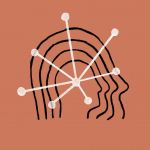Microsoft discovered AI agent vulnerabilities to manipulation in simulation

Microsoft created a simulation environment for testing AI agents – and discovered unexpected weaknesses. The study, conducted jointly with the University of Arizona, showed that current agent models are vulnerable to manipulation.
The simulation environment received the name “Magentic Marketplace”. A typical experiment looks like this. A customer agent tries to order dinner according to user instructions, while agents of various restaurants compete for the order. Initial experiments involved 100 agents on the customer side and 300 on the business side.
Managing Director of the AI Frontiers Lab at Microsoft Research Ece Kamar explains the importance of such research. Quote: “There really is the question of how the world will change when these agents start collaborating, communicating with each other and negotiating. We want to deeply understand these things”.
The study covered leading models, including GPT-4o, GPT-5 and Gemini-2.5-Flash, and discovered surprising weaknesses. Researchers found several techniques for manipulating buyer agents. Particularly noticeable was the drop in efficiency when increasing the number of options.
“We want these agents to help process many options”, says Kamar. “And we see that current models really get overwhelmed by too many options”. Agents also faced problems when working together on a common goal – models didn’t understand which agent should play which role.





